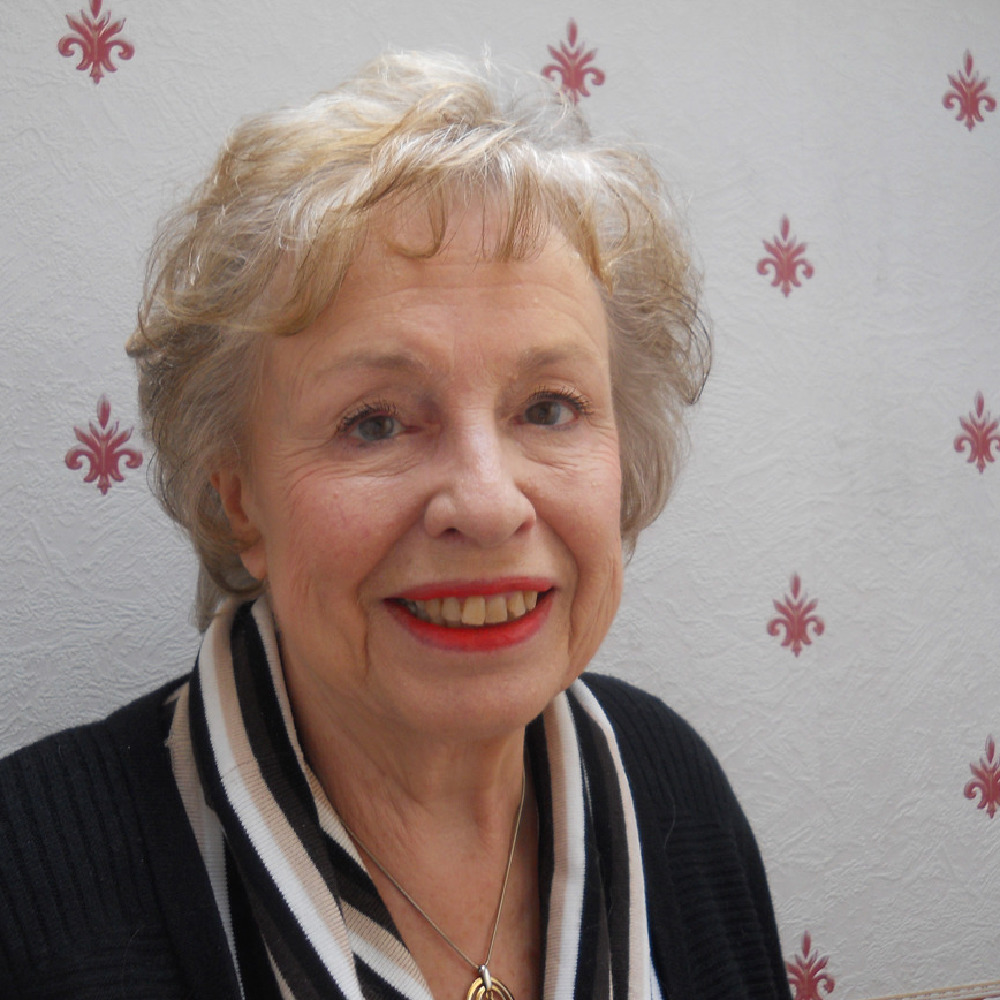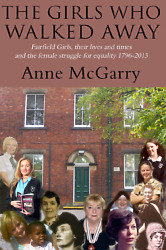
Anne McGarry

The Girls Who Walked Away is a unique and in depth study of women’s lives covering a period spanning four centuries from 1796-2013. It takes one of the oldest girls’ schools in the country and looks at the impact of social, educational, political and equality issues on the lives of the girls who were pupils there. The school acts as a microcosm representing a great many women in this country. There are many fascinating case studies – a famous missionary wife in the 1820s, an Army nurse in the First Word War, an escapee from Nazi Germany, a Squadron Leader, wife and mother who was deployed to Afghanistan in 2009 and an oil engineer working on oil rigs in Angola in 2013. Each generation has played its part from the Georgian and Regency period, The Victorian concept of the ‘angel in the house’, the male opposition to University education for women, the poverty of the thirties, two World Wars right up to the modern independent girl of today. The last chapter of the book “Equality at Last?” – Bringing home the bacon and having to cook it as well” discusses the many problems that the modern woman has to deal with and looks at the work of women journalists who are particular concerned about the female struggle for equality.
Please tell us about your research process into this book.
For information regarding the school and its connection with the Moravian Church in the late 18th century and early 19th century I carried out research in the well catalogued archives of the Fairfield Moravian Church and also the Church’s main archive in London. I was also greatly helped by two books – Historical and Descriptive Notices of Droylsden written in 1859 by John Higson and a history of the Fairfield Moravan Church by the Rev. F.H. Mellowes. They both gave detailed background information into 19th century life in the area. I also carried out research at the National Archives at Kew and the School archive which contained Headmistresses’ Reports to Speech Day and the school magazine. The John Rylands Library here in Manchester held all copies of the Moravian ‘Messenger Magazine’ for the second half of the 19th century and these were studied closely. Volumes relating to the School’s Enquiry Commission of 1868 are held at Manchaester Central Library and these were invaluable in studying the educational provision for girls at the time. There was a whole range of books which provided both background and pertinent information. However the biggest source of information about individual girls came from the thousands of letters written to the Old Girls’ Association since its formation in 1919 when the school was taken over by the Lancashire Education Committee. It was from information contained in these letters that I was able to carry out original research and trace either the girls themselves or their descendants.
Why did you feel so strongly about writing this book?
Originally I was keen to learn more about the school’s history and the girls who had attended it over more than 200 years. As I gathered my information I began to realise that the lives of Fairfield girls were representative of thousands and thousands of other girls in this country and that the female struggle for equality was a universal one. This struggle for equality became the main theme of the book. As I discovered such fascinating information about Fairfield girls, I gradually realised that if I didn’t write their stories down they would probably be left and forgotten for ever in the archives. It was this that spurred me on. I wanted the book to be a tribute to all those girls who had gone before and an inspiration for those that are following.
When did your passion for social history begin?
A long time ago! I think, as a young child, I was fascinated by people and their stories and this interest increased during school days.
Which story surprised you the most?
I found many interesting stories, so to choose one which surprised me the most is difficult. However – Sharman Birtles career path was surprising because her school life was somewhat unorthodox – she was too busy being mischievous to concentrate on academic studies! She once held the school record for being given three detentions in four minutes. Surprisingly she went on to have a successful career in banking and in 1981 she became the youngest magistrate in the County! In 2009 she was elected as the Chairman of Manchester City magistrates – Manchester is the busiest Magistrates’ court in the country and has 420 magistrates and eighteen courts a day. Three years ago Sharman was appointed as a Deputy Lieutenant of Greater Manchester. Sharman says that at the start of her career at the bank there were only whispers of a movement called “women’s lib”, and “girl power” certainly hadn’t been invented. It was still extremely difficult for women to be taken seriously particularly in the world of commerce. When she first joined the bank, all female staff were expected to learn to type and were not encouraged to take banking exams, as it was expected that they would soon leave their jobs to get married and have babies. Sharman says that things have changed since that time, but women still have to push harder to be recognised in almost every field. She told Fairfield girls at a recent prize-giving ceremony “We girls must always think big and have high expectations of ourselves. To achieve this it is important to work hard and to take advantage of the education that you receive at Fairfield”! (In between being mischievous she must have done some work!)
After bringing up your daughters, what made you go back into education?
Going to University had been a long-held ambition – something I would have loved to have done earlier. I had been in the top Latin class at Fairfield and in those subjects which I liked (history and English Literature and language) I was usually top or near the top. Unfortunately it wasn’t really financially possible for me to stay on after sixteen and I was very much influenced by the social attitudes in the 1950s (a woman’s destiny was to be a wife and mother) and I didn’t, of course, have any role models in my family to encourage me. When my youngest daughter started school I realised that this was my chance to study for A levels and go on to university.
You have had a varied career, what has made you take the different paths you have?
The work I did before I had my three daughters was one that I enjoyed immensely. Working on a television news programme used my skills in English and my enthusiasm for current affairs. After a ten year gap I knew that it would be difficult to get back into the television world (the days of non-graduate journalists being employed had disappeared). With a still young family to look after, teaching offered the most attractive alternative. However, when I graduated in 1981 the teaching profession was suffering cutbacks because of the economic situation and the only positions available were temporary or supply. After three years of this and finding it difficult to cope with a very professional career and also still having dependent children (my husband ran his own business and wasn’t really able to help with day to day chores) I decided teaching wasn’t for me. I had loved the chance of doing original research and the challenge of new ideas that studying for a degree had given me, but I began to feel that the classroom situation was somewhat stifling. I decided to go back into the commercial world of Manchester and eventually was able to do some research work at the Headquarters of the Co-operative Bank. (My 60 page research document into electronic banking in Europe was presented to the Board of Directors). Unfortunately the department I worked for moved out to Skelmersdale and I left the bank and then took up work in Insolvency Administration until I retired. Except from my teaching experience my other career moves have been influenced mainly by chance and work which was actually available.
What is next for you?
Just now I am busy promoting my book. In the next few weeks I am having a book launch, a book signing at a local book shop and a talk at a local library. The school, itself is very enthusiastic about the book and will be promoting sales and at the end of the month I’m off on a family holiday in the French Alps. I’ll be mainly there for the gluhwein and the sunshine not the ski-ing anymore!
I feel that writing and research is what I’m happiest doing and I have a couple of projects I’m thinking about.

